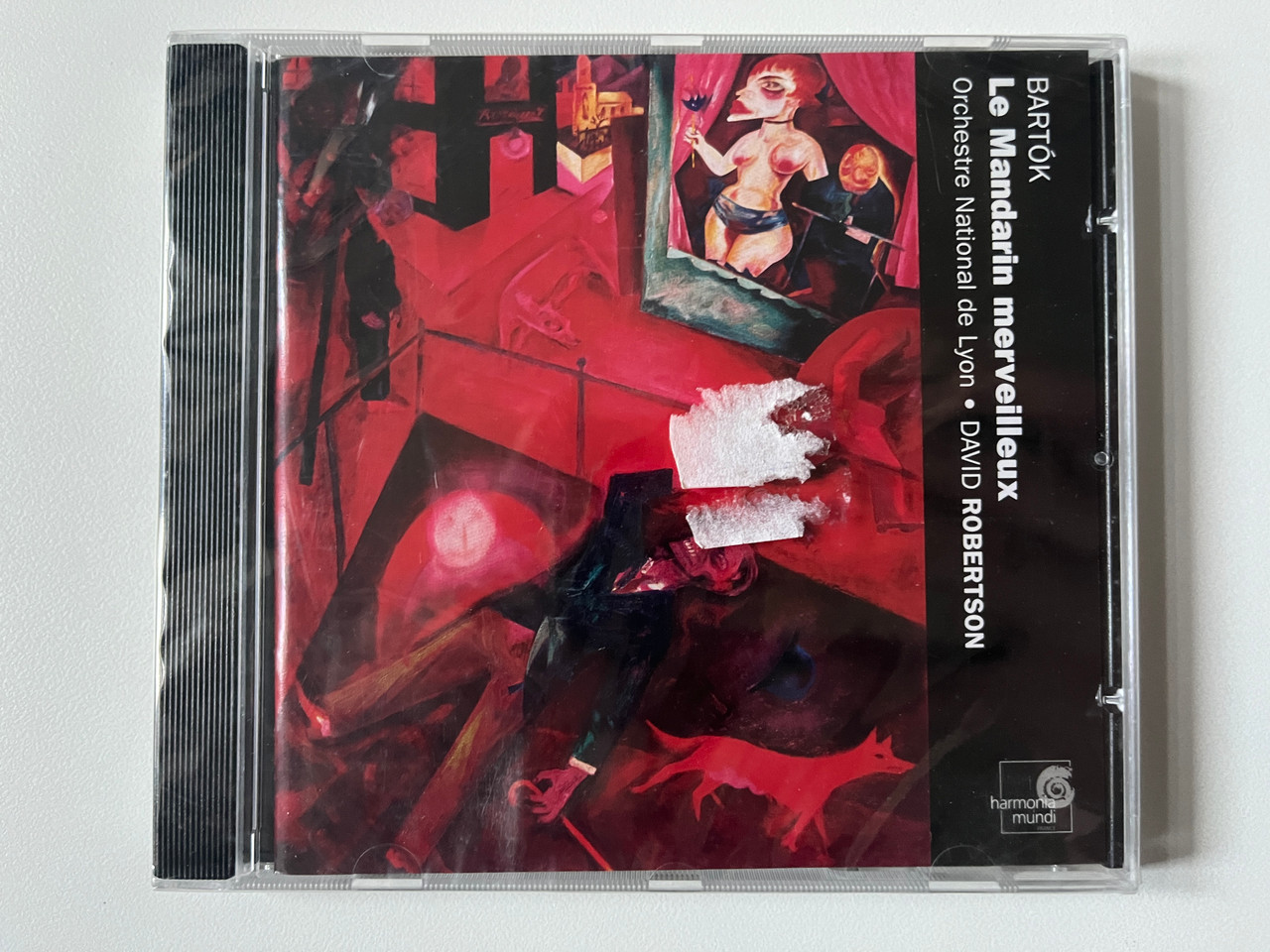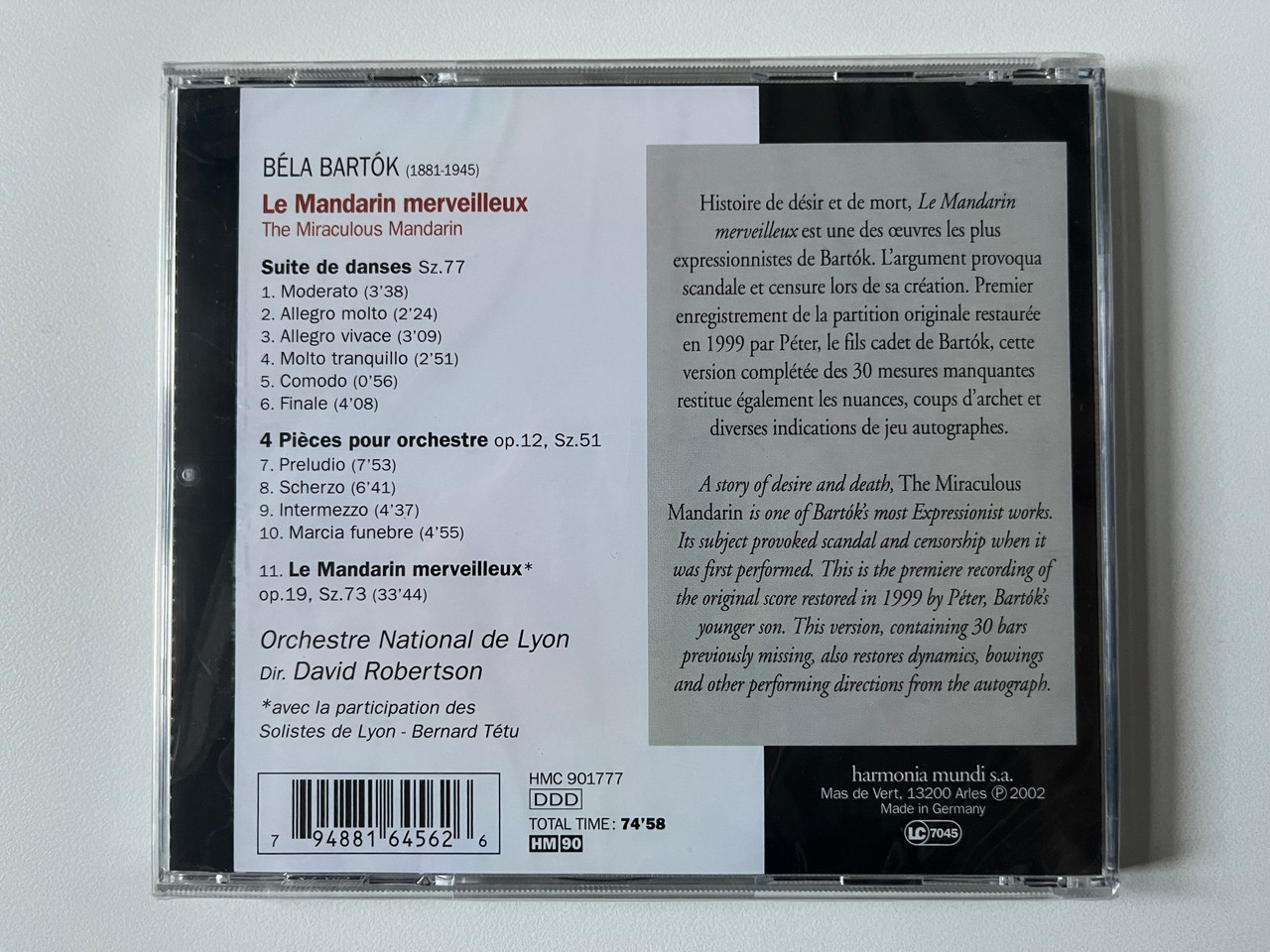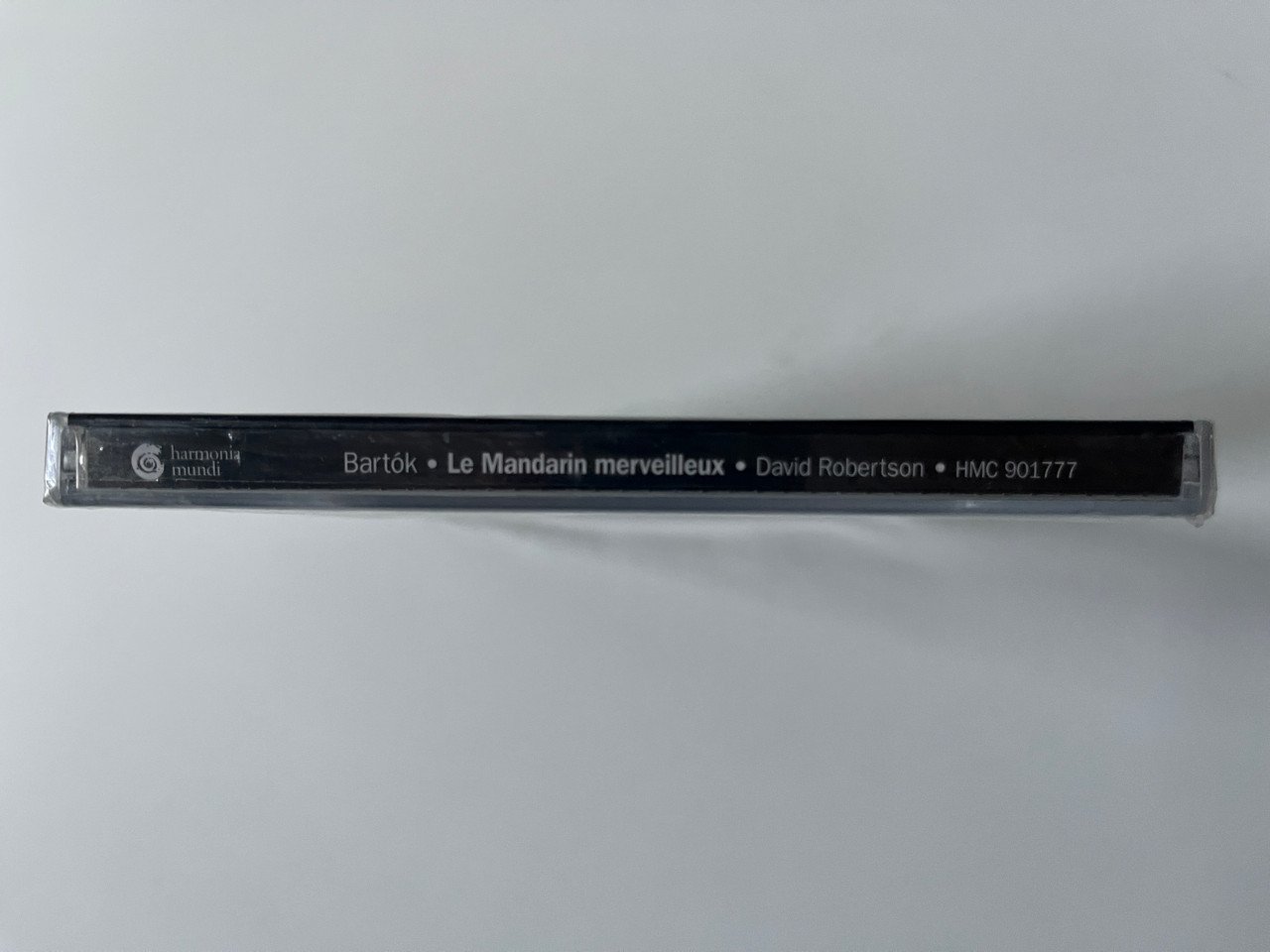Description
Bartok: Le Mandarin Merveilleux - Orchestre De Lyon, David Robertson / Harmonia Mundi Audio CD 2002 / HMC 901777
UPC 794881645626
The Miraculous Mandarin (Hungarian: A csodálatos mandarin, pronounced [ˈɒ ˈt͡ʃodaːlɒtoʃ ˈmɒndɒrin]; German: Der wunderbare Mandarin) Op. 19, Sz. 73 (BB 82), is a one act pantomime ballet composed by Béla Bartók between 1918 and 1924, and based on the 1916 story by Melchior Lengyel. Premiered on 27 November 1926 conducted by Eugen Szenkar at the Cologne Opera, Germany, it caused a scandal and was subsequently banned on moral grounds. Although more successful at its Prague premiere, it was generally performed during the rest of Bartók's life in the form of a concert suite, which preserves about two-thirds of the original pantomime's music.
David Robertson leads a thinking-man's Bartók program. The playing is stunning, all the dynamics are observed, and there's a clarity to all three of the works recorded here that will delight those who love Bartók's brilliant use of the orchestra, his colorations, his inner voices and rhythms. The Four Pieces for Orchestra gets the best performance--the first and third movements are the soul of expressionism, and Robertson gets the strangeness perfectly. The other works, though genuinely good to listen to, lack the sensuality (and danger, in Mandarin) one associates with them; the Lyon forces keep their emotional distance from the music. This is not to say the disc won't excite and please, but for really thrilling performances of Mandarin, especially, go to Fischer or Boulez. --Robert Levine
| Label: | Harmonia Mundi – HMC 901777 |
|---|---|
| Format: |
CD, Album
|
| Country: | France |
| Released: |
2002 |
| Genre: | Classical |
| Style: | Modern |
Tracklist:
| Suite De Danses | |||
| 1 | Moderato | ||
| 2 | Allegro Molto | ||
| 3 | Allegro Vivace | ||
| 4 | Molto Tranquillo | ||
| 5 | Comodo | ||
| 6 | Finale | ||
|
4 Pièces Pour Orchestre Op. 12, Sz.51 |
|||
| 7 | Preludio | ||
| 8 | Scherzo | ||
| 9 | Intermezzo | ||
| 10 | Marcia Funebre | ||
| 11 | Le Mandarin Merveilleux op;19 sz. 73 |


























